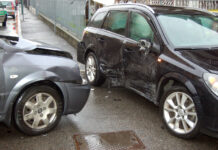Car accidents are always unexpected, and more often than not, they will be shocking and disorienting experiences. Considering the shock and disorientation, possible injuries, and an overall chaotic scene, it can be very easy to make a serious mistake that can hurt a potential claim later on, which is why understanding the Legal Roadmap After a Crash is essential. From not documenting evidence to making rushed statements, there are plenty of ways a car accident participant can hurt their case.
This guide offers a legal roadmap after a crash and highlights some of the most common mistakes to avoid in car accident claims, which are sure to help anyone unfortunate enough to be involved in one.
1) At the Scene: Safety First — but Document Everything
Your immediate priority must be safety and medical attention. After ensuring that everyone is safe, you must treat everything at the accident site as evidence.
Take photos of vehicle damages, skid marks, injuries, traffic signals, even the weather. Get names and phone numbers of all the participants and witnesses, and ask the responding officer his officer ID, as well as the case number.
Try to collect as much information and evidence as you can, as this can make or break a claim considering how courts and insurers place a great importance on contemporaneous photos and official reports.
2) Don’t Admit Fault (or Guess at What Happened)
It is natural to feel sorry, and oftentimes even apologize after an accident. In car accident cases though, this could be misread as admitting responsibility, so it’s best avoided.
You will be helping your case the most if you just stick to the facts like where you were, what you saw, and if anyone got injured. Anything more than that should be left to the police, courts, insurers and lawyers to determine based on evidence.
3) Get Medical Care and Keep Every Record
Even if you feel fine and don’t think you’re injured, go see a doctor and get checked as there are numerous injuries, including whiplash, soft-tissue damage, and internal bruising, that can appear or worsen after days later. Keep copies of all medical bills and records (even imaging, prescriptions and therapy notes), as well as records of any potential days off work.
These documents will be the basis of your claim for economic damages (medical expenses and lost wages), and will also support your non-economic damages (pain and suffering)
4) Be Cautious with Recorded Statements and Insurer Questions
Giving an immediate recorded statement to the other driver’s insurer generally isn’t required, and can be risky at best, detrimental to your future claim at worst. Offhand phrasing or any inaccuracies in your recollection of events will be used to weaken your claim. It would be best to consult a car accident lawyer before giving any recorded statements to insurers.
5) File Claims Promptly — and Know the Deadlines
Filing an insurance claim as soon as possible can be crucial for claim processing and evidence preservation. Additionally, the statute of limitations(the legal window to file a lawsuit) varies by jurisdiction. For example, in Arizona it’s generally two years, while it’s generally only one year in Kentucky, so it’s very important to check the statute of limitations in your jurisdiction.
6) Preserve Technical and Digital Evidence
If your vehicle has a dashcam or a telematics device make sure to preserve and backup the footage. Try to get footage from as many surveillance cameras as you can and be quick about it as devices often overwrite data. Phone location data, repair shop estimates, medical imaging, and any other evidence should be saved as it can all help your claim.
7) Don’t Settle Too Quickly — Wait until Your Injuries Are Clearer
Oftentimes, insurers will pressure the claimants to settle quickly as many people would prefer to avoid long legal battles and court proceedings. Accepting any settlement before you know the full extent of your injuries leaves you at risk of losing compensation for any future medical costs, lingering pain or disability. Try to wait until your prognosis is well understood so that future expenses can be calculated with the most accuracy possible.
8) Expect Negotiation — and Expect the First Offer to Be Low
Similar to our previous point, insurance companies will usually start with a low opening offer. It’s important to understand that this is usually just that, an opening offer, so don’t treat it as a final one. Gather all your documentation(medical bills, receipts, medical expert statements, proof of lost income, expert repair estimates) and consult your attorney so that you can prepare to counter the offer.
Conclusion
With so much going on immediately after a car accident, it’s very easy to make mistakes or skip some important steps, but having a legal roadmap after a crash can guide your decisions. It’s important to stay calm, ensure everyone’s safety, and start recording as much evidence of the scene as possible. Take photos, note names of witnesses and responding police officers, and contact your lawyer for some immediate advice.
If you do the right things and manage to avoid the mistakes mentioned here, you will be increasing your chances of a successful car accident claim.
Find a Home-Based Business to Start-Up >>> Hundreds of Business Listings.

















































